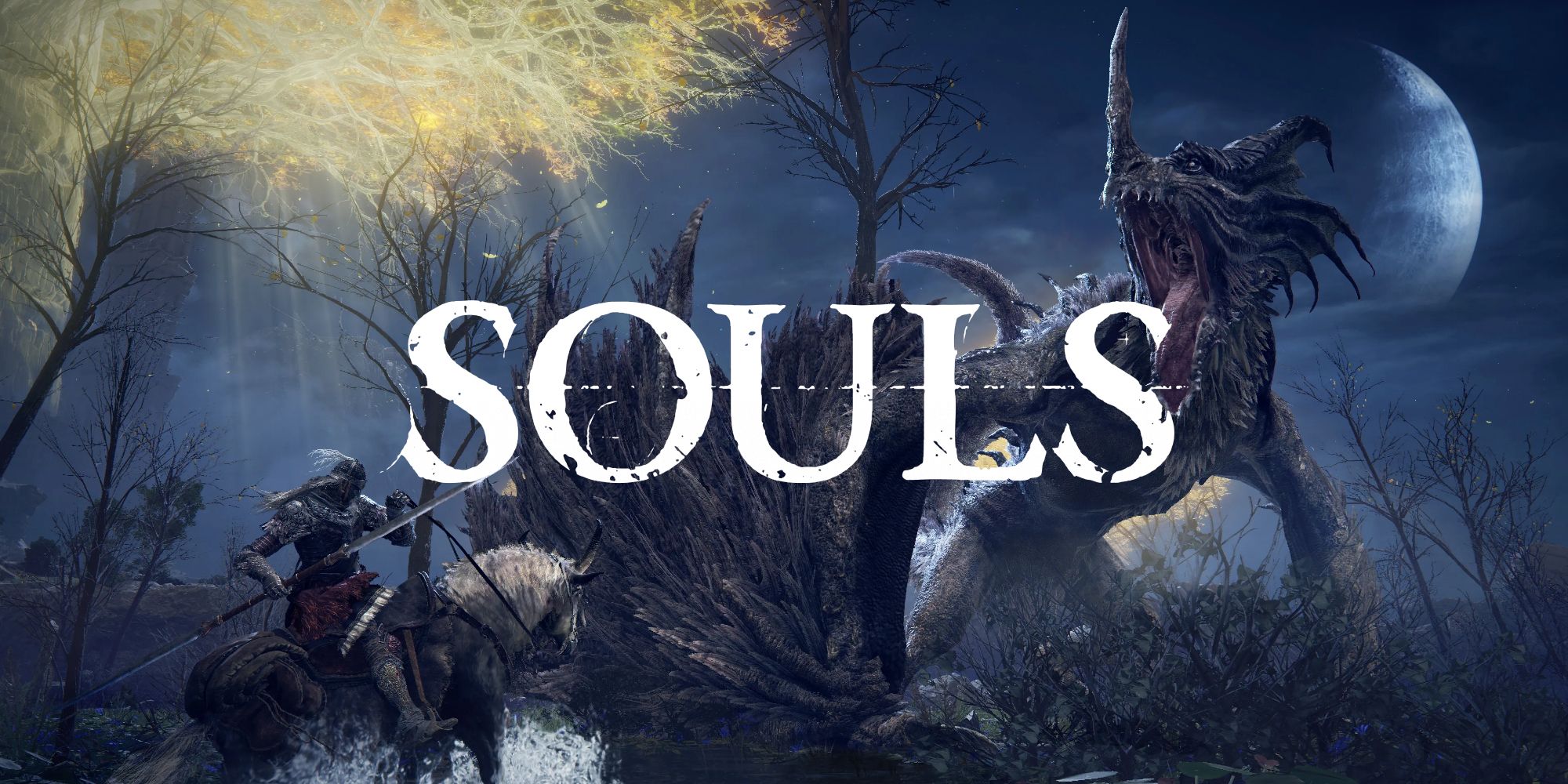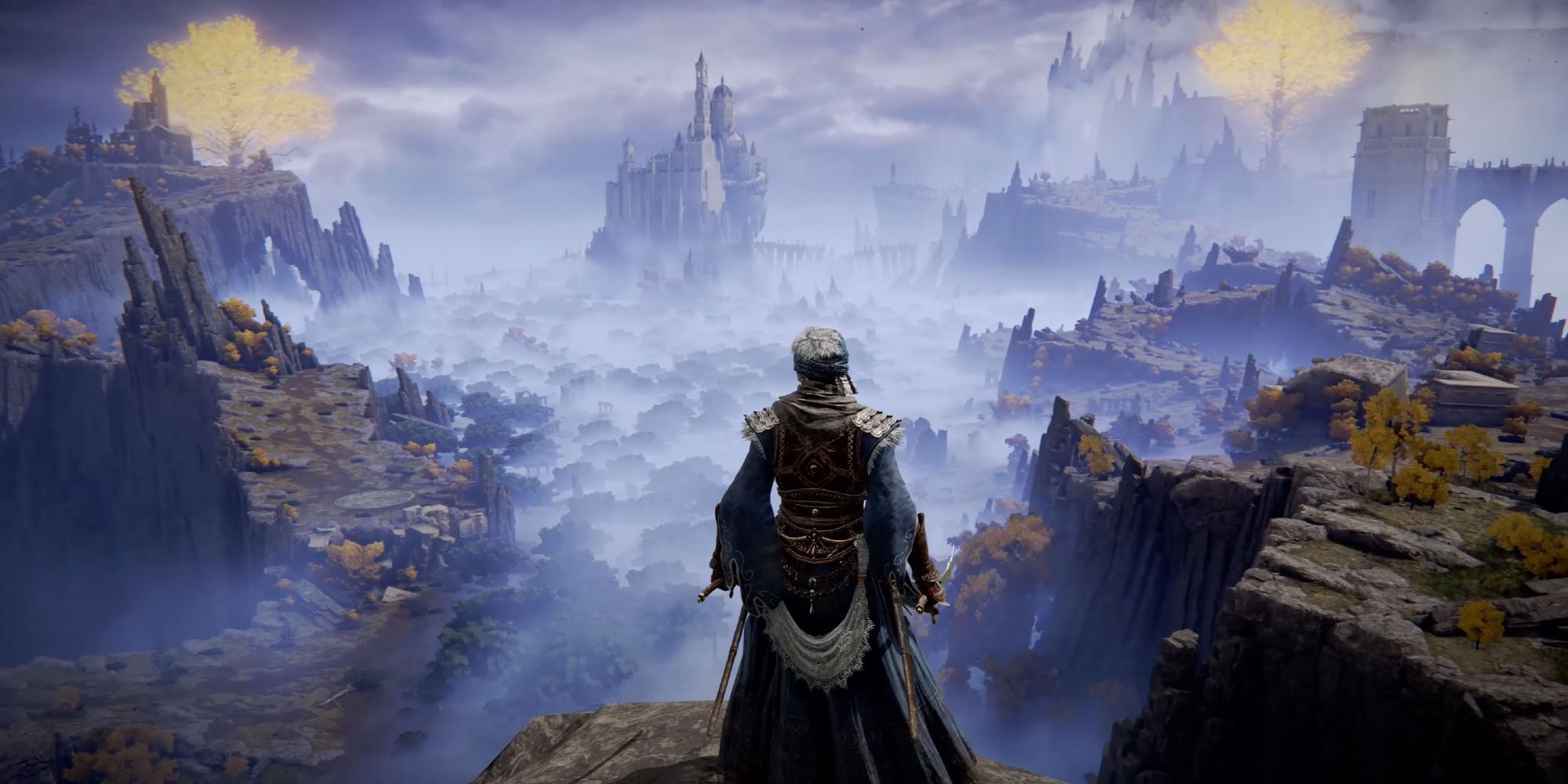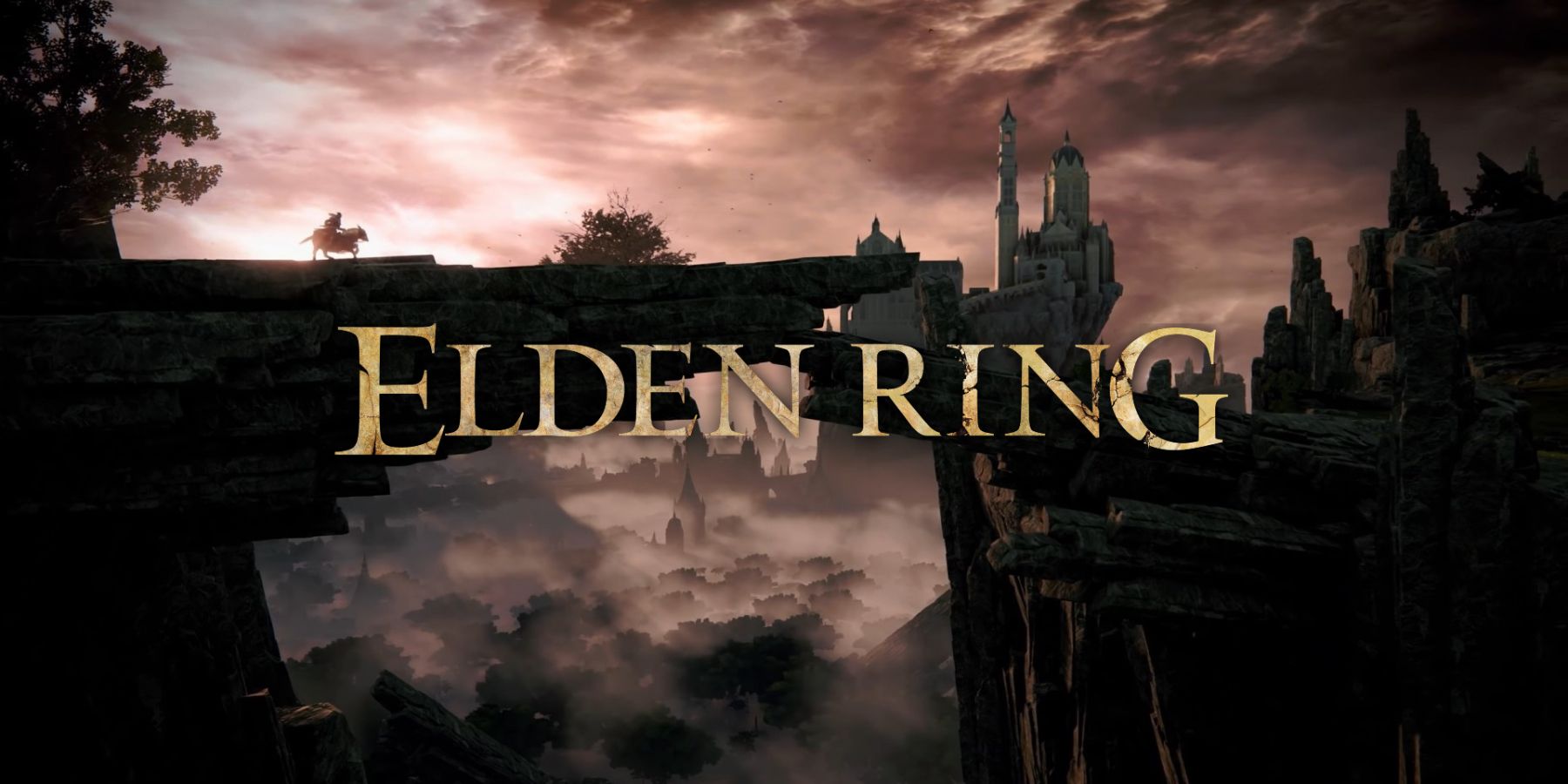In many ways, Elden Ring is a spiritual successor to the acclaimed Dark Souls series, but to call it a Souls game may be a bit of a misnomer. Much of Elden Ring's DNA is taken directly from the Souls formula, its original progenitor being 2009's Demon's Souls, but Elden Ring is almost like Dark Souls, Bloodborne, and Sekiro all at once - an amalgamation of FromSoftware's previous titles with an unprecedented scale. Elden Ring appears to be the most ambitious addition to the Soulslike sub-genre yet, and certainly has many of the same broad strokes as the four Souls games, but manages to differentiate itself quite thoroughly.
As previously mentioned, the original Souls game was Demon's Souls, which recently received a beautiful remake for the PlayStation 5. It first released on the PS3, and became something of a cult classic - beloved by die hard fans, and lauded by certain critics who saw its potential. FromSoftware's approach to action-RPGs wouldn't receive widespread acclaim until Dark Souls in 2011, which received two sequels that round out the Souls catalogue. Dark Souls is still important 10 years later, having a wide-reaching influence on not just FromSoftware games, but the industry at large, and becoming the de facto comparison for any game touting its difficulty as a selling point.
The bloody, Lovecraftian, Victorian England-inspired Bloodborne, and the fast-paced, rhythmic, Shinobi game Sekiro: Shadows Die Twice complete the current list of FromSoftware Soulslikes that Elden Ring will join upon its release. Both games similarly owe a lot of their design to the Souls franchise, but each can be considered a farther cry than Elden Ring. Just like all four Souls games, Elden Ring is part of the dark fantasy genre and has a lot of aesthetic similarities. The parallels are numerous, right down to minutiae in storytelling and gameplay - Elden Ring even uses Dark Souls' gesture system. The "Big Dark Souls" jokes that arose after Elden Ring's reveal turned out to be incredibly accurate, but the game is also poised to be something more grand than any of its predecessors.
Elden Ring's Mythos Will Be Clearer Than Souls Games
From a broad narrative perspective, Elden Ring doesn't appear to be anything special when compared to the Souls games. Fallen rulers and deteriorating kingdoms is something of a modus operandi for FromSoftware when it comes to its dark fantasy games. Elden Ring's player character, the Tarnished, also isn't really that different than the Chosen Undead or the Ashen One. The Closed Network Test that a select group of players got to participate in last November shows that players will even learn about the world in the same way - from cryptic NPC dialogue and item descriptions scattered throughout the world.
George R.R. Martin's role in Elden Ring has provided a wide base for these tropes to build on, though, and FromSoftware has claimed that players can expect a more direct narrative delivery. In an interview presentation for the Taipei Game Show (which can be seen in its entirety on YouTube, courtesy of Bandai Namco), FromSoftware's Yasuhiro Kitao mentions that the story in Elden Ring will unfold more like that of Sekiro. NPCs will have more direct dialogue, giving the player more details on what they need to do for side quests, and more thoroughly explaining how the game's world operates. Martin has supposedly created a detailed history of The Lands Between, and FromSoftware's narrative will be a natural extension of that mythos.
Elden Ring's Open World Is A Fundamental Difference From Souls
Even though Elden Ring's combat has some differences, including major magic system changes from past FromSoftware games and the addition of mounted combat and summonable spirits, the game world being almost entirely open necessitates some foundational changes in how Elden Ring is played when compared to its Souls ancestors. Demon's Souls was by far the most linear, having five levels entirely separated from each other and the game's hub world. The Dark Souls titles allow for a bit more player freedom, approaching something that warrants the "open world" descriptor, but ultimately restrict the player to certain paths. Although running is always an option, the Souls games are generally something of a gauntlet, tasking the player with surviving just long enough to reach the next checkpoint.
For many, the long task of beating every Soulslike game is so daunting because the games force players into conflict head on. Elden Ring will give players free rein on where to go almost immediately, presumably after a tutorial section. They can even skip the first major dungeon if they want and head straight for areas intended to be conquered later in the game. Although Sekiro is still quite difficult - some might even claim it's the hardest of the bunch - being able to stealth kill enemies was a revelation. Similar stealth mechanics in Elden Ring, with its spirits and option to fight on horseback, open up a vast number of approaches to combat that simply aren't possible in the Souls games. The level up system, weapons and armor, and combat controls may all be inherited from its predecessors, but Elden Ring's dynamic open world has greatly expanded the number of possible play styles.
Elden Ring Doesn't Have "Souls" In The Name
This may be an issue of taking a name too literally, but Elden Ring not having the word "souls" in its title is an important distinction. Dark Souls 4 could have been made open world, or some other word thrown in front of "souls" instead. The exact extent of Elden Ring's departure from the Souls games won't be known until it's out, but its very name indicates FromSoftware's intent to create something else. One could say that Bloodborne is just a Souls game with a Victorian setting and more prominent horror elements; it still has a similar stat system and combat mechanics. Bloodborne is by definition not a Souls game, though, and its an example of why terms like "Soulslike" exist.
Elden Ring may have FromSoftware's infamous poison swamps and propensity for dragons, be a dark fantasy RPG, and have a setting of a kingdom fallen into disrepair with the player destined to hunt down its lords in order to attain some glorious status, but that doesn't necessarily make it a Souls game. It's a very thin line to walk, but FromSoftware clearly regards its latest game as new territory. Bloodborne felt like a bonus at the time; a minor interlude to the Souls series. Six years after Dark Souls 3, with Sekiro in the interim, Elden Ring is larger than the Souls games, and doesn't exactly fit within its parameters, even if the overwhelming influence is obvious.
Source: Bandai Namco/YouTube




